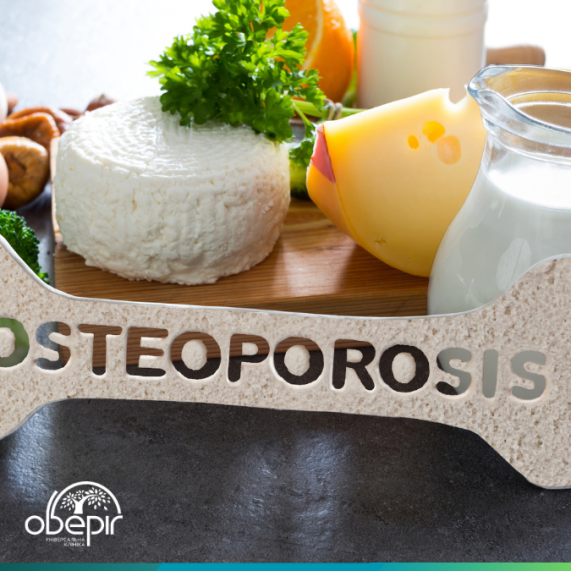Prevention of osteoporosis: world recommendations
21 July 2025


21 July 2025


The global medical community emphasizes that osteoporosis prevention should begin long before the appearance of the first symptoms and include a comprehensive approach aimed at maximizing bone mass accumulation in youth and preserving it throughout life. Key recommendations include:
Adequate Calcium intake:
Dietary Sources: Preference should be given to calcium from food. Primary sources include dairy products (milk, yogurt, cheese), green leafy vegetables (broccoli, spinach, cabbage), calcium-fortified foods (some juices, plant-based milks, cereals), and fish with soft bones (sardines, salmon).
Supplements: If dietary calcium intake is insufficient, calcium supplements may be recommended. However, it's crucial not to exceed the daily dose (typically 1000-1200 mg for adults), as excessive intake can have side effects.
Adequate vitamin D levels:
Sunlight: The main source of vitamin D is sunlight. However, due to geographical location, time of year, and the use of sunscreens, this is often insufficient.
Dietary sources: Fatty fish (salmon, tuna, mackerel), fish oil, egg yolks, and vitamin D-fortified foods.
Supplements: Many people have a vitamin D deficiency, so supplementation is often recommended. The recommended daily dose varies but is often 800-2000 IU for adults, with potential adjustments based on blood vitamin D levels.
Regular Physical Activity:
Weight-bearing exercises: walking, running, dancing, jumping, and strength training with weights contribute to bone strengthening.
Balance and coordination exercises: special exercises on hemispheres and yoga help prevent falls, which are a primary cause of osteoporotic fractures.
Important: Physical activity should be regular but adapted to individual capabilities and health status.
Avoidance of harmful habits:
Smoking: Nicotine negatively affects bone metabolism. Quitting smoking is a crucial step.
Excessive alcohol consumption: Alcohol can impair calcium and vitamin D absorption, as well as affect balance, increasing the risk of falls.
Maintaining a healthy weight:
Both excessive weight and underweight can negatively impact bone health. Being underweight, especially in women, is associated with lower bone mineral density.
Fall prevention:
For elderly individuals and those at increased risk of falls, it's essential to create a safe home environment (remove rugs, improve lighting), wear comfortable shoes, have vision checked, and regularly undergo screenings for fall risk factors.
Management of chronic diseases and medications:
Certain diseases (e.g., thyroid disorders, celiac disease, chronic kidney disease) and the use of specific medications (e.g., glucocorticoids, some anticonvulsants) can increase the risk of osteoporosis. It's important to discuss this with a doctor for possible treatment adjustments or the initiation of preventive measures.
To schedule an examination, please call: +38 044 521 30 03
